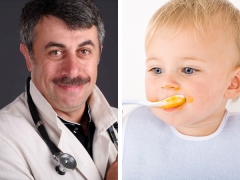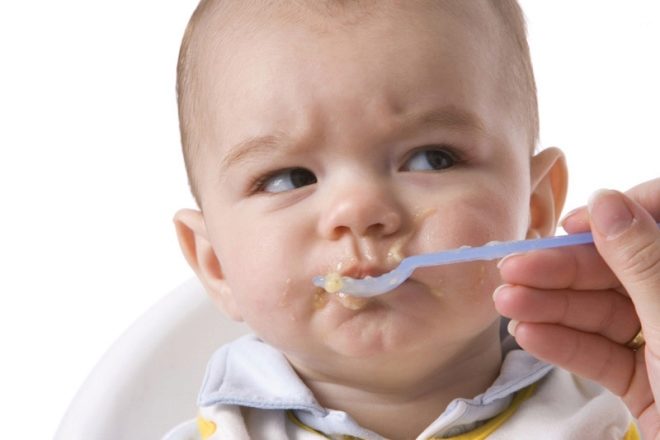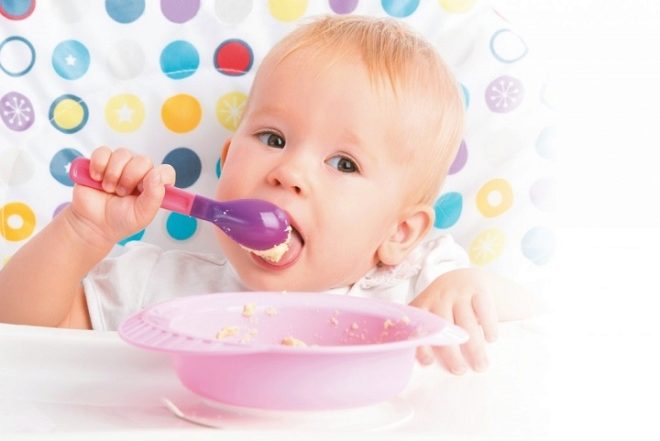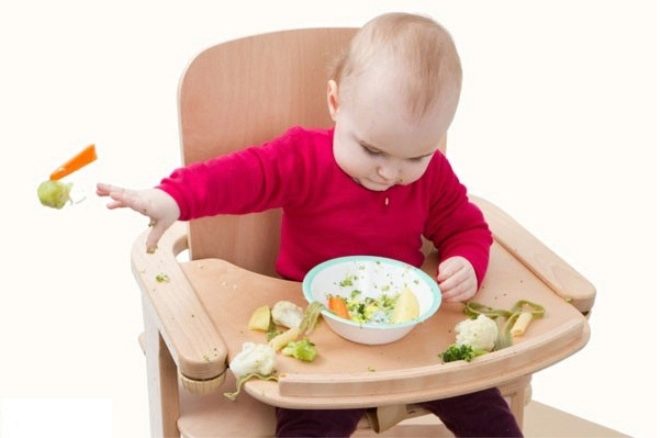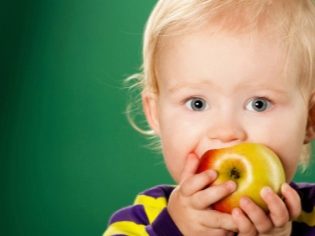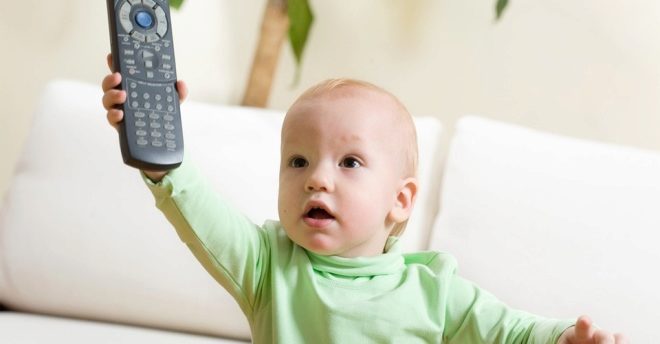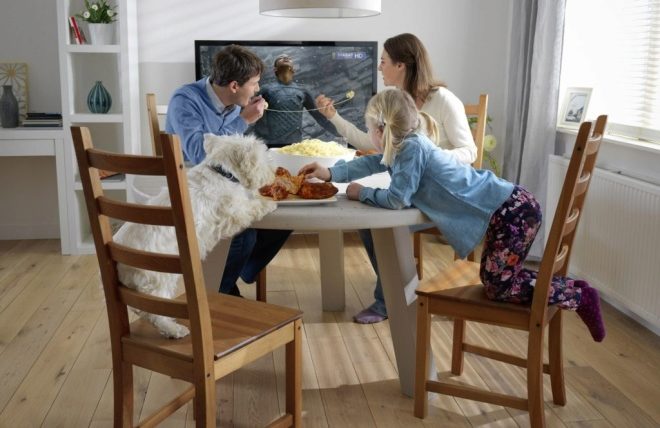Dr. Komarovsky on how to teach a child to chew, swallow, and self-eat with a spoon
Parents of babies are well aware that all stages of the development of the baby by modern pediatrics are placed in certain age frames that will be more convenient for mothers and fathers to navigate in the process of growing children. So, the timing of the introduction of complementary foods, the approximate timing of the appearance of the first teeth. There is a time limit for such skills as self-possession of a spoon while eating, as well as the ability to chew and swallow solid food.
By medical standards, a child at 7-8 months may well eat from a spoon with the help of his mother, and by the year to keep it alone. Confidently own a spoon, according to official textbooks on pediatrics, the baby should be to one and a half years. The crumb should bite and chew solid food closer to the year if the number of teeth allows.
In theory, everything looks smooth and smooth. In practice, parents often face problems. The child does not want to eat hard, even with teeth, the child refuses to take a spoon in his hands, quickly loses interest in eating with a spoon, gives up eating or choking pieces. Evgeny Komarovsky, a reputable pediatrician, tells parents what to do in this situation.
All the rules of feeding will tell Dr. Komarovsky in the next video.
Komarovsky about the problem
Not chewing
Children who would not learn to chew and swallow by the age of 5-6 do not exist, says Yevgeny Komarovsky. The chewing reflex (and this is not a skill, but a reflex!) Is in all people, only it is activated at different times. In some earlier, in others - later. When asked what prevents the reflex from developing earlier, the doctor answers one thing - parents!
Overly caring parents who are in no hurry to give solid food to a child are all afraid that the baby will choke. As a result, a crumb in 2 years, when he is already physiologically able to eat pieces himself, continues to receive food from mum and dad wiped into mush.
Do not eat with a spoon
Precinct pediatricians, especially the older generation, often remind mothers that by 8-9 months a child should eat normally from a spoon, and keep it on her own for a year and still get it in her mouth. Allegedly by this skill can be judged on the neuro-psychological development of the child.
Yevgeny Komarovsky categorically disagree with this wording.
A spoon is more of a psychotherapeutic device for mom and dad, and not a much needed thing for the child.
In other words, if a crumb eats with a spoon, and even himself, the parents begin to respect themselves immensely, to be proud of their upbringing of the baby and in every possible way feel “like everyone else” and even better. But if he doesn’t take a spoon or, even worse, deny it at all, then for many a mother is a distress signal, saying that somewhere she, mother, made a mistake - was too lazy to teach, didn’t insist, did not demand, did not interest .
In fact, the need to eat it with a spoon with the child will sooner or later be formed independently. And then the crumb pretty quickly (because there is a motivation-interest!) Learns to hold a spoon and bring it to the mouth. Therefore, if a baby prefers to eat liquid porridge from a bottle at 9-11 months, do not force him to do it with a spoon. Everything has its time.
Does not want to eat food pieces
Evgeny Komarovsky warns that this problem is quite common among children who have long been on breastfeeding, and their parents were not in a hurry to teach them to lure. But if such questions have arisen, then it is too late to look for reasons, you need to think what to do.
Komarovsky encourages parents to reasonably and objectively evaluate the ability of their child to chew. To do this, you need to calculate how many teeth he has and how they are located. Giving a crumb to gnaw an apple or a bagel if he has only two teeth is a real parental crime, especially considering that the vast majority of parents do not know how to provide first aid. Two teeth would be enough to bite off a piece, but not enough for reflex chewing.
Therefore, it is better to stick to the ration of the same approach to the consistency of food, which manufacturers of ready-made baby food adhere to, and they change it gradually - first mashed potatoes, then mashed potatoes with small pieces, then - thick homogeneous food and, finally, thick food with hard fragments. But it’s difficult to define the age range, says Yevgeny Olegovich, since all children are individual, and one year old with a mouthful of teeth chews an apple, and the other one and a half with three or four or a little more teeth continues to eat mashed potatoes.
Do not want to eat until they turn on cartoons
This is another common problem. The child looks at parents, copies them, and 90% of the population is accustomed to eat, looking at the TV. In addition, some especially “suggestive” moms specifically include cartoons that the child was distracted from the fierce resistance to food intake, while she, a caring mother, would stuff a couple of extra spoons of cereal or mashed potatoes into it.
Komarovsky recommends not to form such a habit in a child, and at the same time get rid of his adult dependence on TV.
Yes, baby, looking at the TV, eat more. But this is precisely the main danger. When a child looks at a plate while eating, he produces gastric juice, so much needed for normal digestion. And if he looks at the cartoon characters, the juice is not produced, and such food will not bring good, and threatens with stomach diseases. Already, even for this valid reason, it is impossible to eat while watching cartoons.
Tips
- If the child is not chewing, but is trying to lick or suck an apple or cookie, he does not need to rush to rub the apple on the grater or soak the cookies in milk. Give it hard solid food, if the number of teeth allows, let it train. It turns out at all, without exception. No child has yet gone to school, unable to chew food.
- Giving complementary foods is best a special baby spoon, and not the usual tea. This cutlery is made of plastic, which the baby will not hurt, it has a smaller volume that does not make it difficult to swallow. If the child does not accept such a spoon, do not feed him so forcefully. Let him eat from the bottle.
- If the child refuses to chew, swallow and take a spoon in his hands, Komarovsky advises to reconsider the diet. It is likely that the baby just does not have time to get hungry for real. This happens in families where the crumbs are given to eat "when it is time", and not when he asks for food. Overfeeding is not only the reason for the reluctance of the baby to take part in the process itself, it can trigger the mechanisms of various diseases. And because overfeeding is more harmful than not feeding.
- Teaching a child to eat independently is not difficult, says Komarovsky, the main thing is to “catch the moment” and help the child, unobtrusively support him in an effort to take a spoon, a cup in his hands. But to teach by force, especially if the child is not yet ready to act independently at the table, and even more so to “crush” the crumb, is not the best parental decision.
- If a child is selective in eating (he is only something definite), then this is definitely not a hungry child, says Dr. Komarovsky. This hunger completely eliminates selectivity. And therefore it is not necessary to indulge such selectivity, the child should eat what his mother put in front of him. If he does not eat, then he does not want to eat.Better to wait for him to get hungry for real.
- You do not need to do for the child what he is already capable of doing himself. If we are talking about the fact that the baby does not take a spoon at the age of one and a little older, this is one thing. But everything changes, if a child in 3-4 years does not want to eat himself and demands from his mother that she feed him. After two years, Komarovsky advises to put a plate, give a spoon and leave the kitchen for a while, every day increasing the time of absence.
Returning, mom should not be interested in how much a crumb ate with a spoon, you need to pretend that nothing surprising happened. Usually after a few days, the child begins to eat at least half of the prescribed portion himself. Do not forget to show maximum patience and tact.
